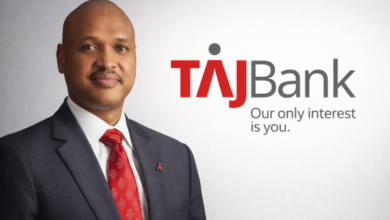Temu Faces Storm of Nigerian Complaints Amid E-Commerce Gamble

China’s fast-rising e-commerce juggernaut, Temu, has run into a reality check in Nigeria, as a wave of consumer backlash threatens to overshadow its bold market entry and rock-bottom pricing strategy.
Temu — which launched in Nigeria in November 2024 with a blitz of online advertising and “unbeatable deals” — is facing a barrage of complaints over deceptive pricing, poor product quality, misleading promotions, and difficult refund processes. What began as buzz is fast turning into buyer’s remorse for many Nigerian consumers.
Temu’s “Awoof” Strategy Meets Nigerian Skepticism
Temu’s go-to-market approach in Nigeria was textbook disruption: slash prices, promise free gifts, eliminate middlemen, and go direct-to-manufacturer. For a market long fatigued by local price inflation and FX-driven import costs, the platform’s ultra-low pricing was instantly magnetic.
But after the initial thrill, cracks are emerging.
A survey by the News Agency of Nigeria (NAN) and conversations across Nairaland and TikTok paint a tale of two Temus: a platform delivering on affordability for some, and for others, a digital wild west of undersized goods, confusing terms, and disillusionment.
Real Stories, Real Frustration
- Funmi, a Lagos resident, was lured by Temu’s vibrant ads and placed two back-to-back orders for cheap dresses. What arrived was disappointing — low-quality clothing far from what was advertised. Attempts to cancel the second order were futile.
- Olawap, a Nairaland user, narrated a friend’s comical but painful ordeal — ordering a microwave only to receive a toy-sized replica.
- Pray4meJC, another user, spent ₦130,000 on a standing fan described as battery-powered and premium, but received what he called a “primary school project.” He was then instructed to ship the item back to China — at his own cost — for any hope of a refund.
Even Temu’s famous “free gift” campaigns have come under fire. Several users accuse the platform of using bait-and-switch tactics, advertising freebies but requiring minimum purchases of ₦30,000–₦50,000 before checkout — a condition buried in fine print.
BRANDECONOMY Insight: A Cautionary Tale in Cross-Border E-Commerce
Temu’s stumbles highlight the growing pains of international platforms entering Nigeria without fully adapting to the cultural expectations and consumer protection standards of the market.
Yes, Nigerians love bargains. But they also demand value, transparency, and trust. With internet literacy and e-commerce awareness rising, platforms are no longer judged solely on pricing — but also on fulfilment, authenticity, and customer recourse.
Temu’s model, while successful in the U.S. and Latin America, is now under serious scrutiny in Africa’s largest economy, where logistics complexity, customs delays, and regulatory uncertainty add another layer of friction.
🛡️ Temu Responds — But Is It Enough?
In its response to NAN, Temu said it takes consumer feedback seriously and defended its promotions as “genuine,” with clearly outlined conditions.
“We are still learning local preferences and adjusting our services,” Temu stated, adding that it uses global testing agencies and enforces strict seller standards.
The platform insists it is committed to providing a secure, affordable and trustworthy shopping experience in Nigeria.
📌 Bigger Picture: Is the Nigerian E-Commerce Market at a Turning Point?
Temu’s entry and ensuing controversy raise critical questions for Nigeria’s digital commerce ecosystem:
- Regulatory Oversight: Nigeria currently lacks an independent e-commerce watchdog with the power to sanction deceptive platforms or enforce refund protections. The Federal Competition and Consumer Protection Commission (FCCPC) may need to step up enforcement in cross-border e-commerce.
- Platform Accountability: Global entrants must invest in local operations, hire Nigerian compliance staff, and provide clearer dispute resolution channels.
- Consumer Awareness: Nigerians must be educated on how to read fine print, verify product specifications, and escalate unresolved disputes beyond comment sections.
BOTTOM LINE:
Temu may have entered Nigeria with deep pockets and sharp discounts, but trust is not sold at wholesale. As consumer patience wears thin, the platform must rethink its approach — or risk becoming a cautionary tale in the fast-growing but unforgiving Nigerian e-commerce landscape.
🧭 Stay with BRANDECONOMY for the real stories behind the platforms shaping Africa’s digital future.












